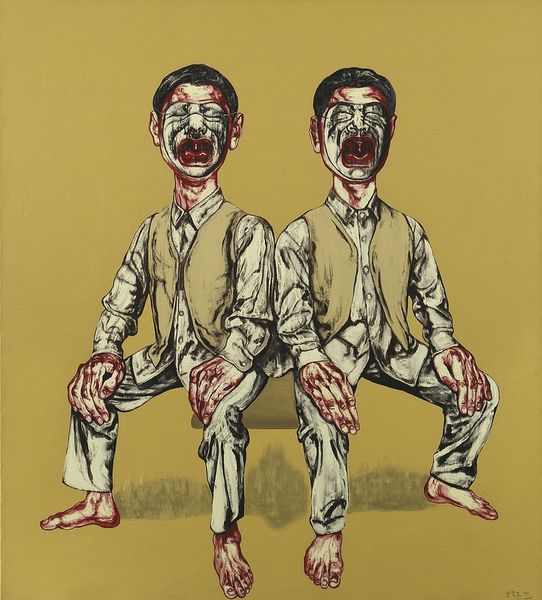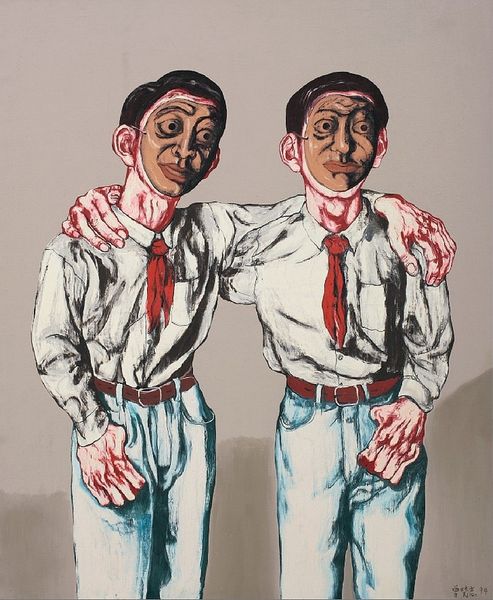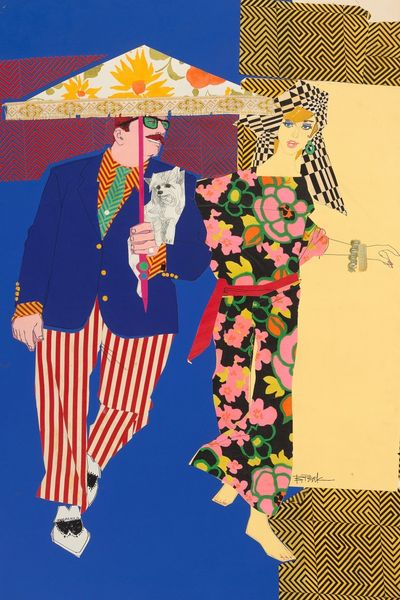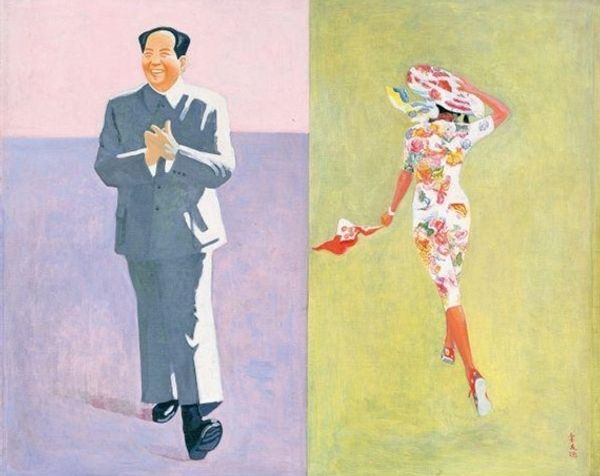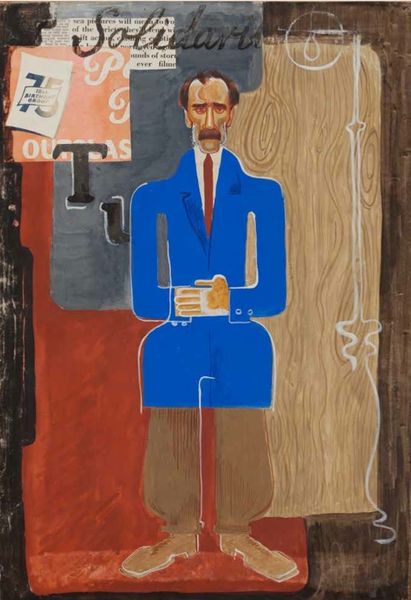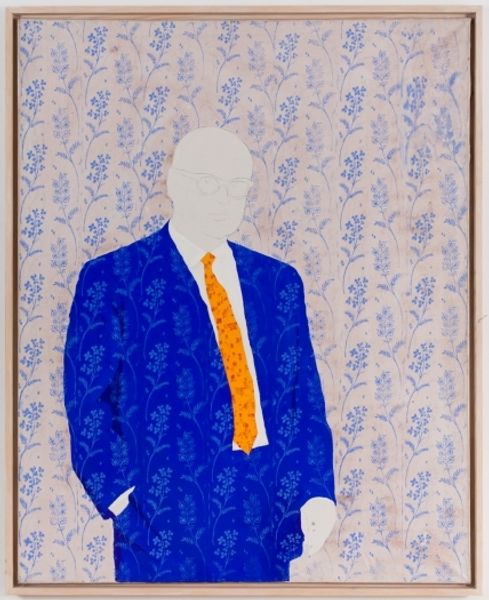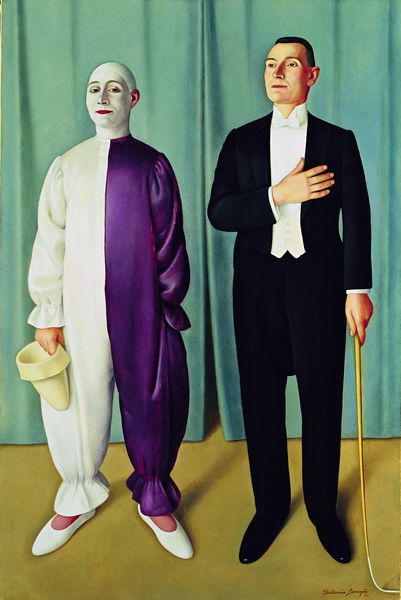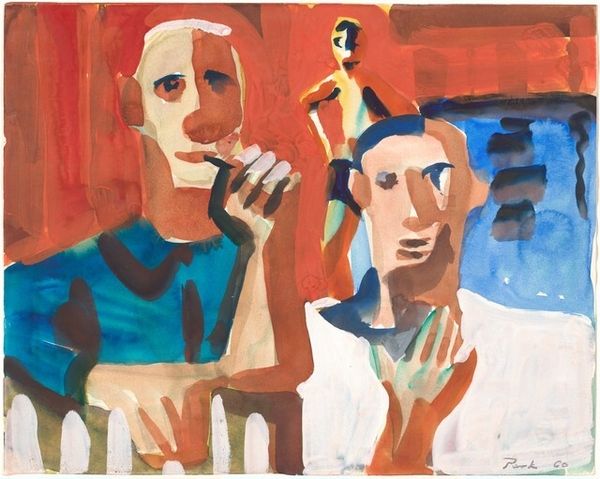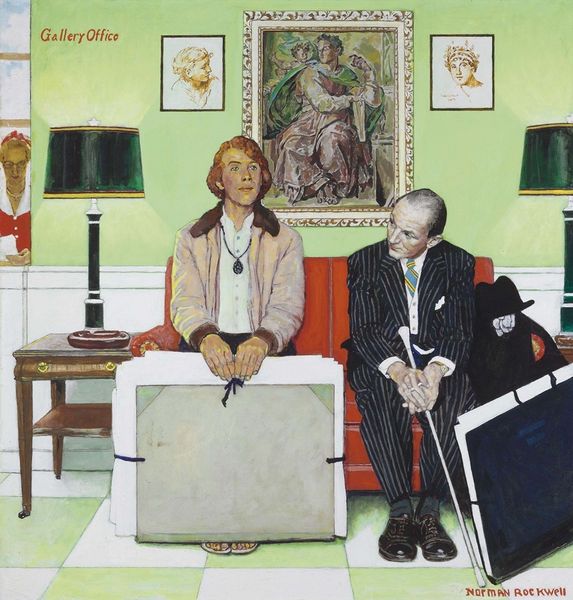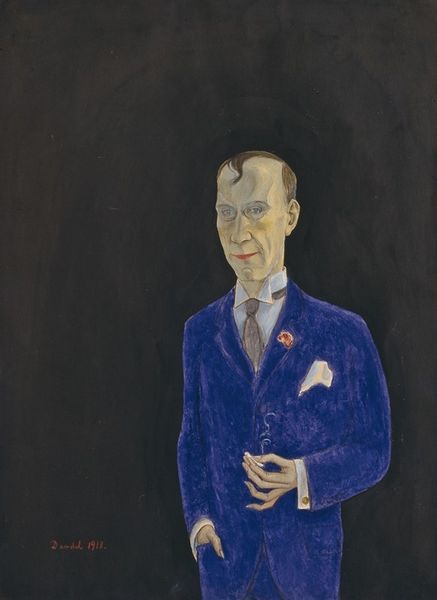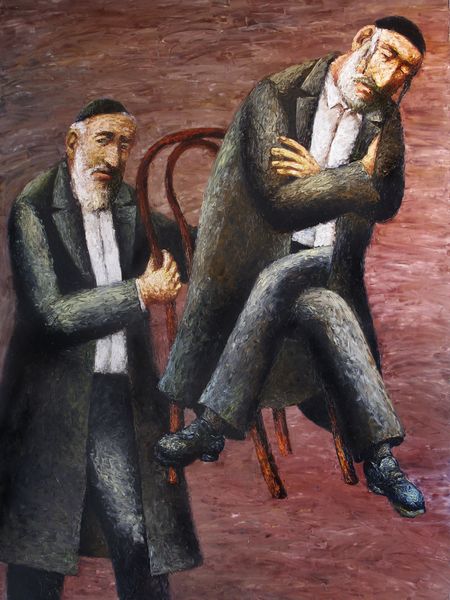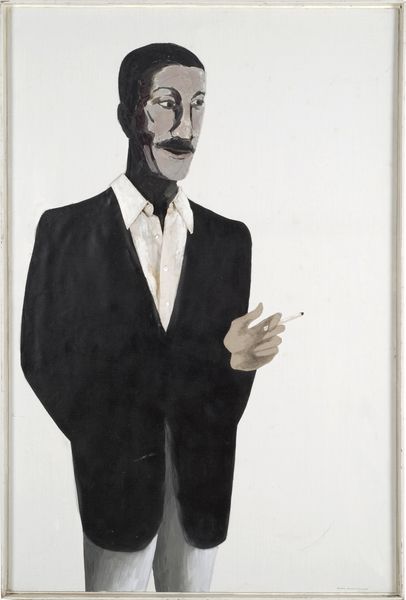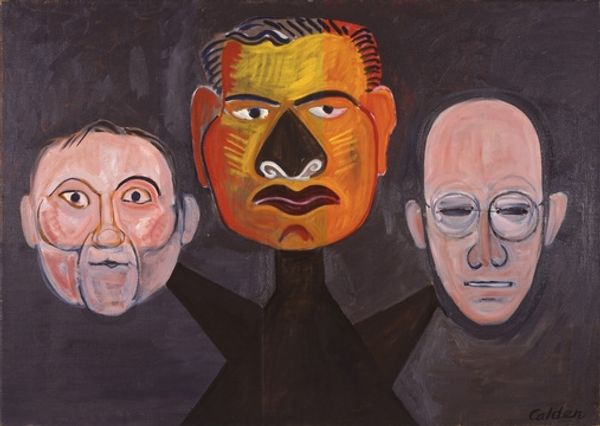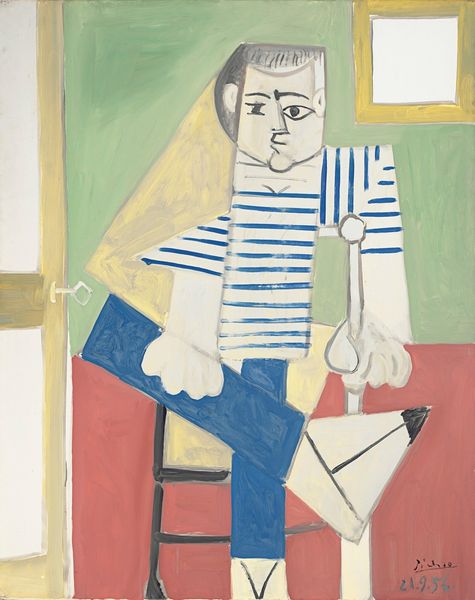
Copyright: Zeng Fanzhi,Fair Use
Curator: I find this work, "\u0421\u0435\u0440\u0438\u044f \"\u041c\u0430\u0441\u043a\u0438\" \u211610," intriguing. It's an acrylic on canvas created by Zeng Fanzhi in 1998, part of his "Masks" series. Two figures sit on a stark blue bench against a bubblegum pink backdrop. What are your immediate thoughts? Editor: Unease, definitely unease. There's something deeply unsettling about the frozen smiles and the stark contrast of the sterile suits against that almost offensively bright background. It feels…artificial, as though their very humanity is being questioned. Curator: It is a painting of profound ambiguity. The masks suggest hidden emotions or perhaps the social masks people wear to conform. In 1990s China, amidst rapid economic changes, these masks served as visual metaphors for navigating the shifting social landscape, where identity was becoming increasingly complex and sometimes performative. Editor: Absolutely. And note the hands - those incredibly expressive hands! They betray a vulnerability that the masks attempt to conceal. This is what really strikes me; Zeng is showing us the tension between public facade and private experience, the emotional toll of adapting to a rapidly changing, often alienating, world. I think the anxiety of the era resonates strongly here, wouldn't you say? Curator: Yes, that dichotomy is key. Zeng was, after all, dealing with the commodification of culture and the individual. Even the formal qualities point to this—the juxtaposition of pop art elements with almost classical portraiture creates an unsettling sense of displacement. And one could argue the masks speak to issues around cultural authenticity, and national identity. Editor: Looking at this work in the present context, it reflects our current obsessions on social media too, doesn’t it? These staged images become the masks we decide to use to create carefully constructed online identities, showing only select aspects of ourselves, raising concerns of the authenticity of interactions. Curator: Precisely. It’s a reflection of the performance of identity. I am left to consider what it truly means to "be" oneself when cultural, societal and global pressures push and pull in so many conflicting directions. Editor: It makes me want to resist the urge to smooth over life's rough edges. Let's face it, authenticity in all its messy glory is always going to be more meaningful.
Comments
No comments
Be the first to comment and join the conversation on the ultimate creative platform.
